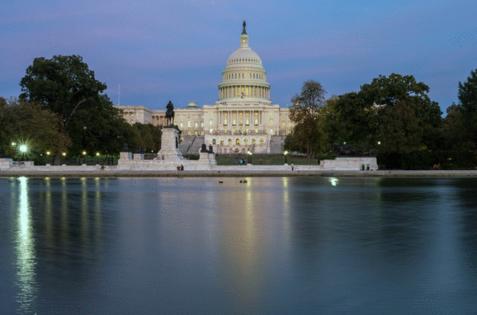Commentary: Want to bridge divides? You're not alone --most Americans do too
Published in Op Eds
Americans are exhausted—by our divisions, our politics, and a media landscape that thrives on tearing us apart. When asked to envision our ideal future, Americans say they want to connect and be united. But how do we get there?
Perhaps, I'm simply invoking my Midwestern roots here, but I believe most Americans not only want to know their neighbors but to be good neighbors.
I was born and raised in Gary, Indiana, a city of stark contrasts at the crossroads of America. From the house where I grew up, roads in one direction led to endless cornfields and predominantly white farming communities, and roads in the other direction led to abandoned steel mills and predominantly Black neighborhoods.
By virtue of where I was raised, I grew accustomed to meeting people from many walks of life. But today, we have fewer opportunities to engage with others whose races, religions, classes, and politics differ from our own. In part, this is because so much of our daily lives takes place in a virtual world—we bank online, order groceries from our phones, and spend less time in public spaces. And, if we’re honest, we might see ways in which we separate ourselves from others who are different from us—by choosing to live in communities that are largely segregated across economic, political, and racial grounds, and by retreating into digital echo chambers that reinforce our existing beliefs. Meaningful interactions across lines of difference have become less common, and this may lead us to feel lonelier than ever and less welcome when we’re around people with backgrounds that differ from our own.
As a social scientist who has studied Americans’ desire to connect for decades, I can’t help but find myself wondering: Is this really how we want to live?
At the end of the day, all human beings share some basic psychological needs. Key among them is psychological safety—to live and thrive in places where we feel at home and like we belong, where we feel like we can trust others in our local communities, like our experiences are represented, and our voices heard.
New findings from More in Common echo this basic human desire, showing that most Americans want to engage with others across racial, religious, political, and socioeconomic lines. But despite this interest in connection, many don’t feel they have sufficient opportunities to do so, or they fear rejection if they try.
In order to close this connection gap, we need to stop thinking about bridging our divides as a political issue and start thinking about it as a human one.
This isn’t about advancing a partisan agenda—it’s about equipping everyday Americans with the confidence and capacity to live, work, and thrive together in diverse communities. Despite our worst fears, our interactions with people across lines of difference are often more positive than we anticipate. The more we engage with people who see things differently from us, the more we wish to do so again in the future, creating “cascades” of connection over time. Additionally, the more we see others in our communities valuing connection across differences, the more we become interested in doing so as well.
It’s time to reinvest in our social infrastructure. We can no longer afford to retreat into our segregated spaces because that’s where fear and mistrust of difference grow. As Yascha Mounk explains in “The Great Experiment,” diverse democracies have long struggled to contend with difference effectively—but they can only endure by investing in the social infrastructure that makes connections across differences possible.
We invest in the physical infrastructure of our communities without hesitation. When roads and bridges crumble, we rebuild them. After harsh winters, we fill potholes. There’s no debate—it’s just what needs to be done.
It’s time we apply that same mindset to our social infrastructure. Just as we repair the roads that connect our neighborhoods and communities, we need to invest in civic spaces, public institutions, and local initiatives that help people connect across differences. This means funding public libraries and parks, organizing community events, supporting local journalism, and intentionally creating spaces where neighbors can engage with one another—and not only with those who look and think like them.
Our country may feel more divided than ever before, but as Americans, we are more aligned in our core values than we commonly think. Ultimately, bridging divides isn’t about ignoring our differences or forcing consensus. It’s about building trust in the idea that our communities can be stronger when we actively engage with one another and find ways to live together rather than withdraw. It may not always be easy—but like working out at the gym or learning a new language, we can become more skilled in connecting across differences with greater practice. And given the alternatives that lay before us, it seems well worth the effort.
____
Linda Tropp is a Professor of Social Psychology and Faculty Associate in Public Policy at the University of Massachusetts Amherst and a contributor to a new report from More In Common, “The Connection Opportunity: Insights for Bringing Americans Together Across Difference.”
©2025 The Fulcrum. Visit at thefulcrum.us. Distributed by Tribune Content Agency, LLC.




























































Comments